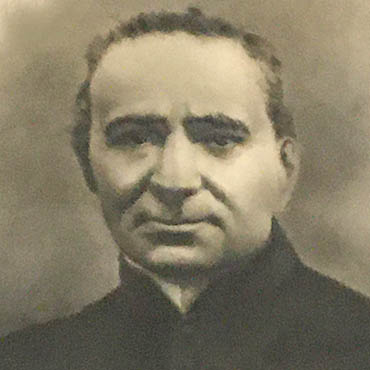Barsi was born in Florence in 1814. He was drawn to classical studies and was a pupil of the Piarists at San Giovannino (especially the Greek scholar Giovanni Zucconi, Inghirami and the Hebrew scholar Angelo Paggi). His detailed studies in Biblical exegesis led him to bring together the theological liberalism of the controversial theological school of Tübingen and the works of Johann Adam Möhler and Franz Anton Staudenmaier.
While still a young man, he was thrown out of the seminary because it was felt that his mind was too inclined to mix Church and modernity, and he was allowed to enter the priesthood only after the intervention of Ferdinando Minucci, the archbishop of Florence. He was elected a canon of Florence Cathedral, but this did not divert him from his activities as scholar and politician.
1848 saw Amerigo Barsi becoming a member of the Italian Parliament, but also witnessed the condemnation of one of his pamphlets, La religione dello Stato, in which he defended the idea of a Catholic State religion that could give guidance to those laymen in authority, even if they had no power to affect decisions on religious issues. In it he affirmed the need to defend freedom of conscience while, at the same time, as far as the law was concerned, he stressed the need to reconcile different truths and to grant the Jews equality under the law.
In the following years he devoted himself to translations, especially La ragion filosofica e la ragion cattolica by Gioacchino Ventura. In 1857 the newly elected archbishop Giovacchino Limberti appointed him vicar general in the diocese of Florence, and to this role he devoted the next 23 years of work, years involving difficult historical circumstances.
Amerigo Barsi died in Florence in 1880, having turned down an episcopal position that he was offered by Pope Leo XIII. Probably because he remembered what had happened to him in the past, during the judicial proceedings that culminated in the condemnation of the book De’ nuovi studi della filosofia he remained close to Raffaello Caverni, who demonstrated his friendship and gratitude by dedicating to him the publication Dell’antichità dell’uomo secondo la scienza moderna.

